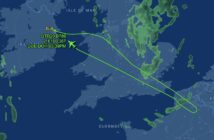The International Air Transport Association (IATA) has signed agreements with additional airlines and airline groups to enhance the CO2 Connect emissions calculator, a move IATA says will improve its accuracy and quality.
During the World Sustainability Symposium in Madrid, agreements were reached with Aerolineas Argentinas, Air Baltic, LATAM Airlines Group, Luxair, and Nile Air.
The goal is to access the most accurate operational data, ensuring global consistency and alignment in CO2 emissions calculations.
By expanding the data pool, IATA aims to provide greater transparency and coherence to passengers and stakeholders, enabling informed CO2 compensation choices and supporting ESG reporting. CO2 Connect utilizes actual airline data, such as fuel burn and load factors, making it distinct from other calculators that rely on theoretical models. IATA is also working on developing a white-label microsite solution, powered by CO2 Connect, for airlines to provide accurate and consistent passenger CO2 emissions data.
This comprehensive solution will include a compensation feature for environmentally-conscious customers looking to minimize their carbon footprint. The methodology includes factors such as:
- Guidance on fuel measurement, aligned with the Carbon Offsetting and Reduction Scheme for International Aviation (CORSIA)
- Clearly defined scope to calculate CO2 emissions in relation to airlines’ flying activities
- Guidance on non-CO2 related emissions and Radiative Forcing Index (RFI)
- Weight based calculation principle: allocation of CO2 emission between passenger and belly carg
- Guidance on passenger weight, using actual and standard weight
- Emissions factor for conversion of jet fuel consumption to CO2, fully aligned with CORSIA
- Cabin class weighting and multipliers to reflect different cabin configurations of airlines
- Guidance on carbon offsets and sustainable aviation fuel (SAF) as part of the CO2 calculation




